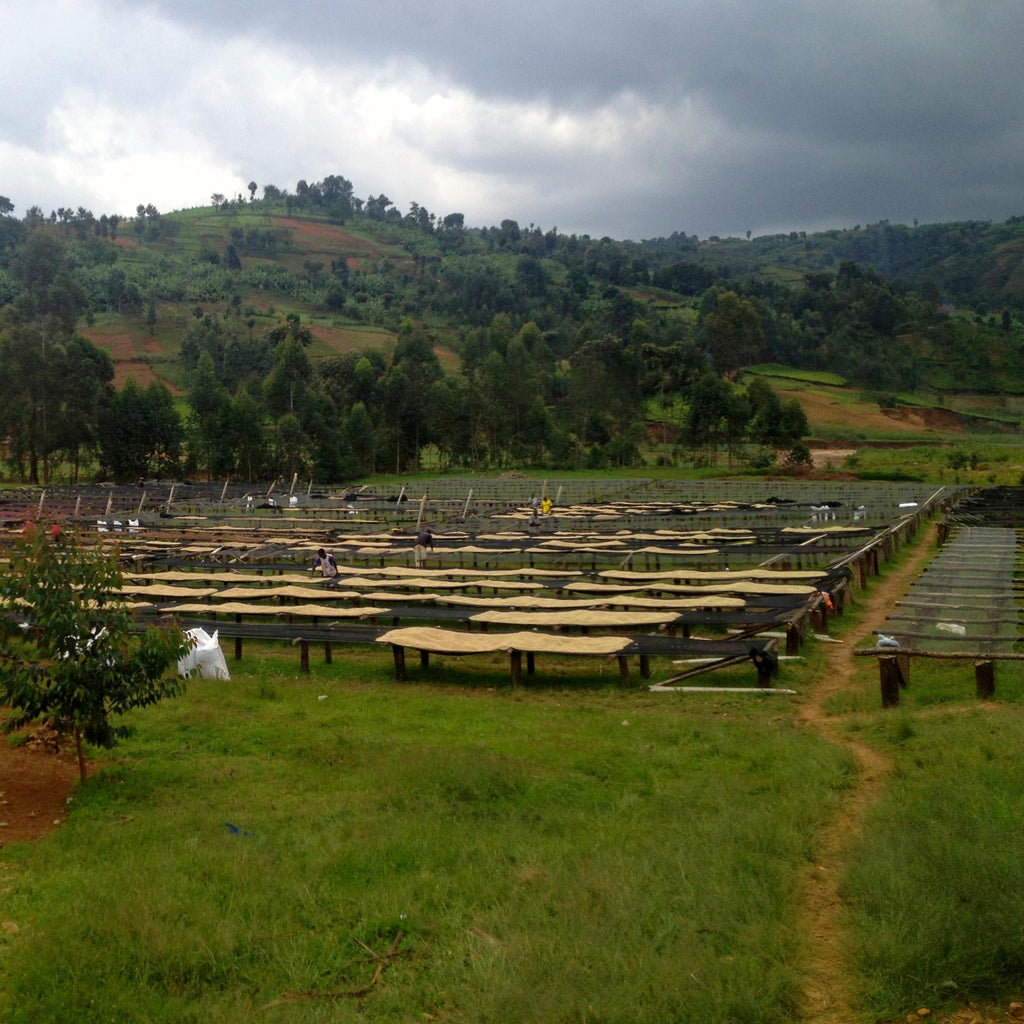In the Kirundo Province of North East Burundi, sits the Kirundo Mill and the Cafex washing station. CAFEX was launched by a Belgian-Burundian couple who wanted to combine the local tradition of coffee production with positively and sustainably developing the local area and have worked hard to develop a mutually beneficial business model for local coffee growers.
Running a washing station is a huge challenge. Farmers work throughout the day to handpick their coffee cherries and at sunset, the coffee arrives at the CAFEX washing station. The processing takes place at night, while the reception of the cherries takes place from sunrise until the early hours of the night, allowing farmers to focus on providing the highest quality coffee.
The CAFEX station has had a really positive impact on families in the region. The town where the washing station is located has been historically underdeveloped and the implementation of the Cafex station provides valuable work for the men and women of the town and helps to improve their quality of life. Families who have a seasonal job have the opportunity to receive an extra income which gives them access to medical care or allows them to buy books in order to send their children to school. On top of this, Cafex has introduced a weekly payment programme for growers, while many coffee producers have to wait many months to receive payment for their harvest, this weekly payment gives them a regular income throughout the coffee harvesting season.
Ripe cherries are selected from daily pickings, and sun-dried on raised African beds, being turned every 2 hours to give even fermentation, and covered during the midday heat to prevent sun damage. Once optimum moisture levels have been reached, the coffee is transported for milling at Ikawa Nziza’s drymill in Gashoho commune between the towns of Ngozi & Muyinga. The mill is designed to cater to small, traceable microlots. Its location in a high altitude (1,730 m.a.s.l.) and low humidity environment provides the optimal environment to preserve the quality of the coffee and therefore demand higher prices for farmers.



